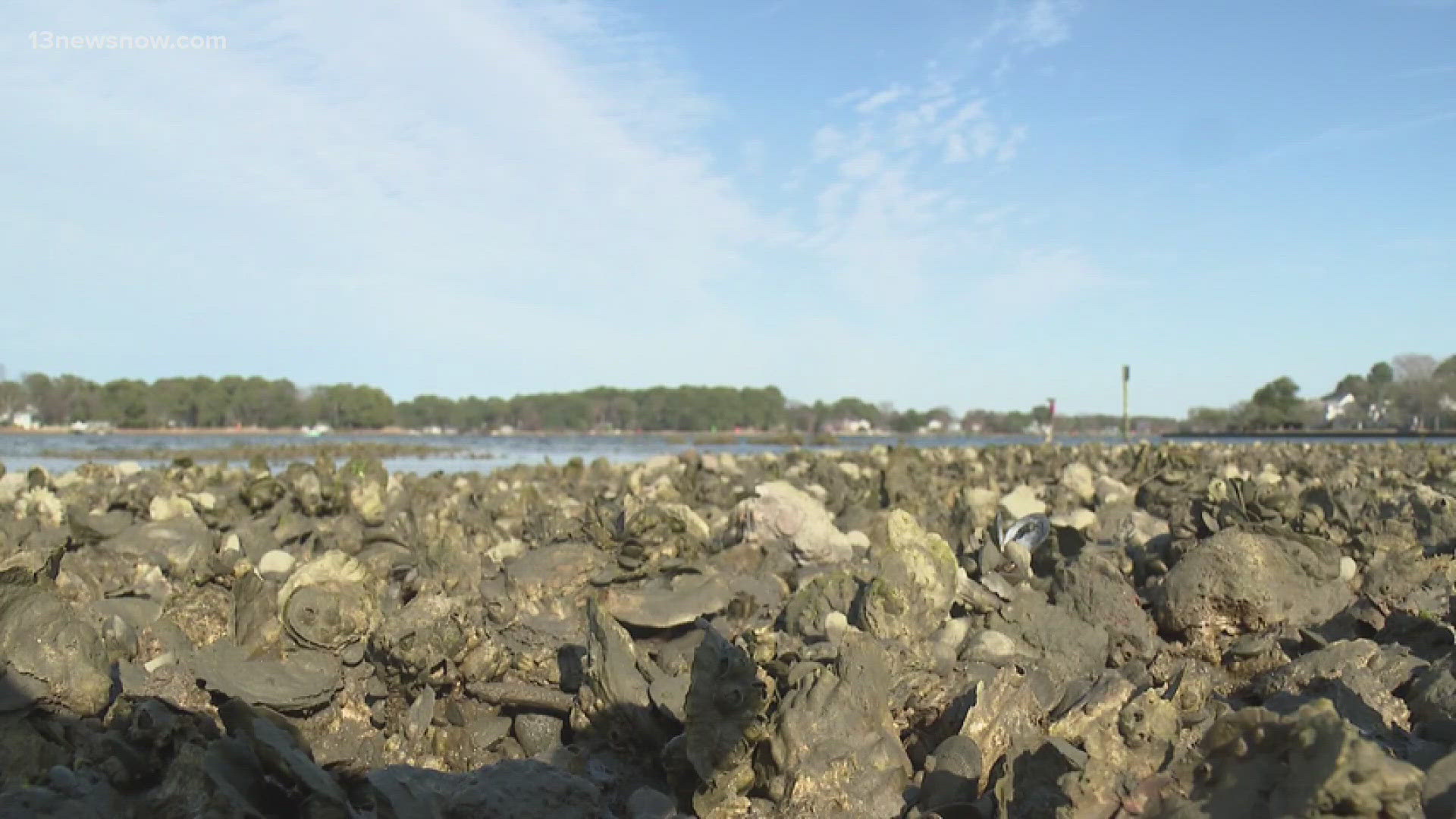VIRGINIA BEACH, Va. — Researchers are baffled as a mysterious syndrome sweeps up and down the East Coast and the Gulf, killing oysters in mass groups.
Little is known about the phenomena, except experts are calling it "Sudden Unexplained Mortality Syndrome," or SUMS, and it seems to be impacting once-healthy oysters that were on the verge of being harvested.
Bill Walton with the Virginia Institute of Marine Science said researchers are still trying to figure out a cause.
"A shellfish farmer will go out to the farm and open up their bags of oysters and find that more than half and sometimes up to 90% of the oysters have died," said Walton. "We cannot find any type of smoking gun on this."
Reports of this sudden mass mortality event started trickling in 2012, across the Atlantic Ocean and the Gulf of Mexico. However, reports have only increased over the years and scientists are not able to say why.
According to a recent six-page report filed by researchers from across the country, experts do not believe it is parasite or infection-related. Some data indicates that it is a combined stress event leading to the oysters' deaths.
Walton said he wants to be clear that while the trend is disturbing, it has no impact whatsoever on the oysters that make it to people's plates.
"We just want shellfish farmers to be aware of this problem; the oysters that make it to restaurants are not in this category, they are fine," said Walton.
Experts are urging shellfish farmers to get in touch with the Virginia Institute of Marine Science if this syndrome has occurred on their farm. These findings could then help researchers to determine why it continues.
"It's so patchy, that is part of the problem," said Walton. "Farmers get frustrated after seeing it year after year, and we want them to call so we can help figure out the problem together."
If you have been impacted by this and would like to let researchers know, you can call VIMS at 804-684-7000.

